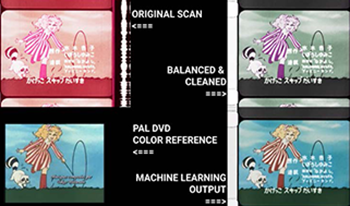
The challenges of film restoration demand versatile tools, making machine learning (ML)—through training custom models—an ideal solution. This research demonstrates that custom models effectively restore color in deteriorated films, even without direct references, and recover spatial features using techniques like gauge and analog video reference recovery. A key advantage of this approach is its ability to address restoration tasks that are difficult or impossible with traditional methods, which rely on spatial and temporal filters. While general-purpose video generation models like Runway, Sora, and Pika Labs have advanced significantly, they often fall short in film restoration due to limitations in temporal consistency, artifact generation, and lack of precise control. Custom ML models offer a solution by providing targeted restoration and overcoming the inherent limitations of conventional filtering techniques. Results from employing these local models are promising; however, developing highly specific models tailored to individual restoration scenarios is crucial for greater efficiency.
Fabio Paul Bedoya Huerta, "Exploring Experimental Machine Learning in Film Restoration" in Archiving Conference, 2025, pp 187 - 190, https://doi.org/10.2352/issn.2168-3204.2025.22.1.35
 Find this author on Google Scholar
Find this author on Google Scholar Find this author on PubMed
Find this author on PubMed